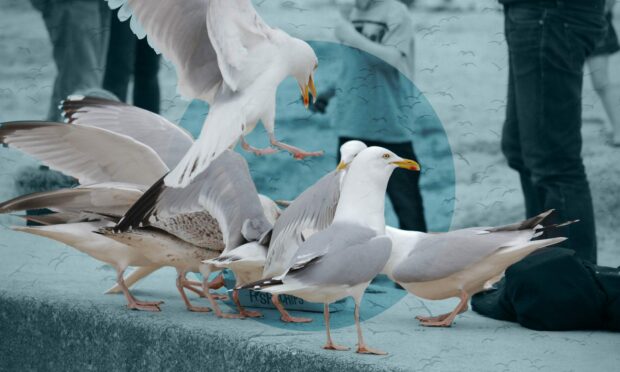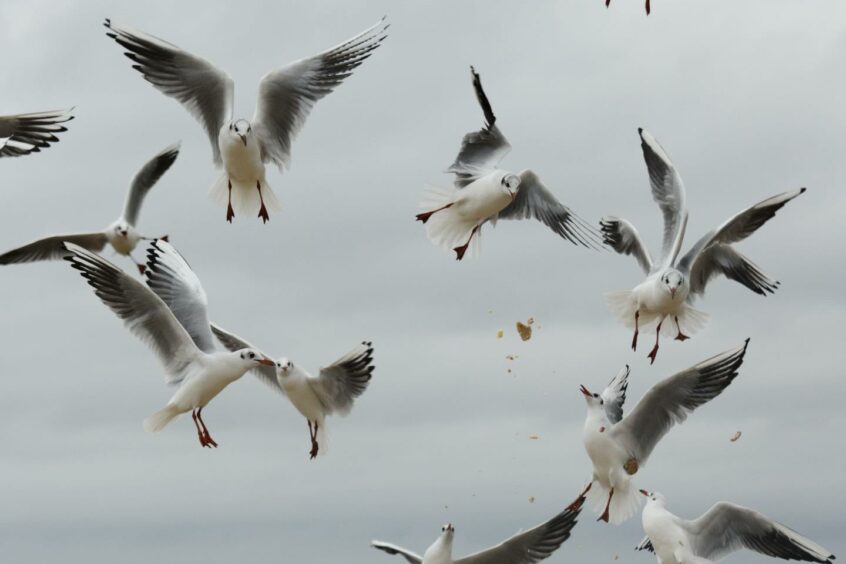A scientist has said the bad behaviour of gulls has more to do with protecting their young, than spoiling your day.
Andrew Douse, a bird policy and advice manager at Nature Scot, said gulls were in decline in Scotland and needed to overhaul their reputation.
Herring gulls and great black-backed gulls are in long-term decline, Mr Douse told Thursday’s edition of BBC Radio Scotland’s Good Morning Scotland programme.
Long-term decline in gull populations
He said: “Both the herring gull and the great black-backed gull are in long-term decline. Their populations reached their peak 30 or 40 years ago and they have been declining fast ever since.”
Changes in marine supplies with fewer discards from boats and a decline in inshore fishing boats was likely to be having a direct impact on bird populations.
He said: “Gulls are also under threat from other species. The mink is a threat in some areas of Scotland. They are good swimmers so can get onto islands and steal eggs.
“I can understand that gulls have a bad reputation, but they are remarkable birds, they are adaptable and they are intelligent.
“They are very good parents and their bad behaviour can be related to the way in which they work to protect their young.”
NatureScot has published strict rules on culling gull populations.
‘Don’t feed gulls in towns’
Admitting they can be a problem in seaside town, such as Oban and Aberdeen – he continued: “Not feeding gulls in towns would be a good start to stop their bad behaviour. And people should not leave food out that would help to reduce their aggression.”
Last month, councillors in Invergordon said they were unable to apply for a licence to cull gull eggs to reduce problematic gulls in the area.
Meanwhile, residents in Elgin have been refused a meeting with NatureScot to discuss their concerns.

